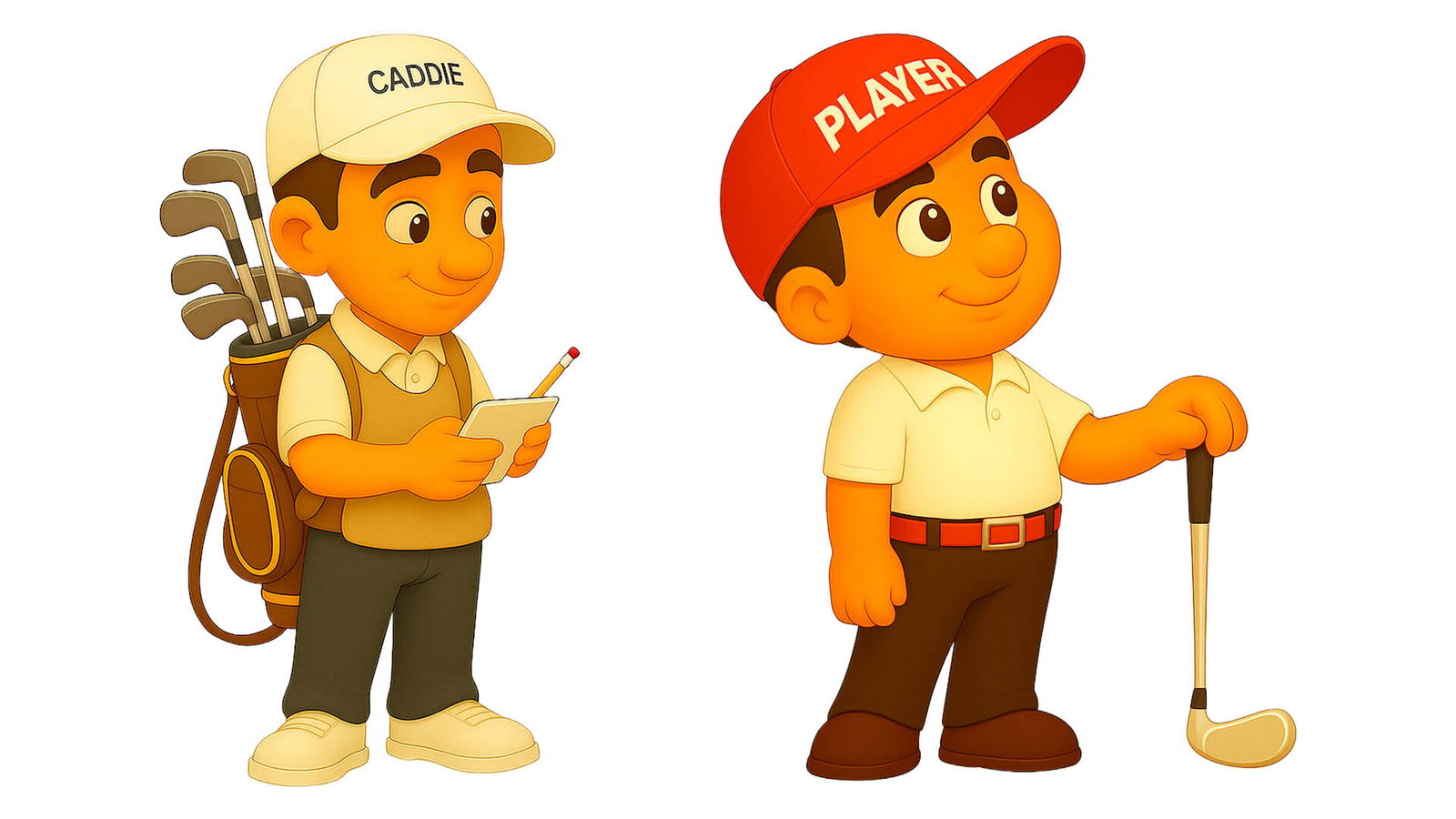Dramatically improve your golf game with former European Tour pro at YourGolf365
Take control of your golf game with former European Tour professional Carl Watts and his game management system, YourGolf365.

In the first of a new series, GolfMagic has teamed up with former European Tour professional Carl Watts and his brilliant game management system, YourGolf365, to help you improve your game.
Watts, 53, has enjoyed an incredible golf career having won the 1989 Boys Amateur Championship before going on to win twice on the Challenge Tour in 1994 and 1996.
Although he never managed to win on the European Tour, now the DP World Tour, he did come agonisingly close when losing out in a playoff to Robert Karlsson at the 1997 BMW International Open during his rookie season.
He also became the first player in European Tour history that week to reach 24-under par.
Watts ended up retiring from the European Tour in 2001 and has since spent the last 25 years working as the residential teaching professional at the beautiful Mannings Heath Golf & Wine Estate in West Sussex, England.
But when it comes to his methodology as a golf coach, Watts very much bucks the trend by teaching players a clever game management system called YourGolf365 that focuses on the Professional Amateur.
To become a Professional Amateur, Watts needs you to first work as a team.
Why is that so important exactly?
Let Game Managment Coach Watts tell you...
Scroll below to learn more about YourGolf365 from Watts, who also highlights what he will bring to GolfMagic over the coming weeks to help you improve your game at large, as well as some of the FREEBIES he's giving way to GolfMagic Readers...
![Carl Watts [1997 BMW International Open]](https://cdn.golfmagic.com/2025-08/carl-watts12.jpg?width=1600)
Hi GolfMagic, Carl Watts here.
So to answer exactly why I believe you need a team in place, let’s take a look at the very best players in the world.
Tour professionals have a team that includes a caddie, a coach, a psychologist and a manager all helping them to maximise time, make good decisions, solve problems, diagnose faults and so much more.
If the very best players in the world such as Scottie Scheffler and Rory McIlroy need a team, then you do too.
Whether you are an aspiring Tour pro, scratch golfer or even a high handicapper, in order to maximise your potential you need to learn first how to become your own team.
When you only see the game through the eyes of the player, you wont realise it, but you are in big trouble.
The player is emotional, makes rash decisions, has too many swing thoughts, keeps trying new tips, reacts to every poor shot and never evaluates the round.
It's time for change.
Through a series of articles I am going to put together for you on GolfMagic this season, my aim is to help you take control of your game by introducing you to the five team roles you need in your game to lower your scores and unlock your full potential.
I call this the Professional Amateur.
The interesting thing is, you fulfil these types of roles everyday in your work and personal lives and so it’s now time to introduce these roles into your golf game.
Over the past 35 years I have competed on Tour, coached a number of professional players and travelled the world and worked with thousands of professional amateurs like you.
Believe me, I have seen many players stuck and frustrated with their games.
One of the key things I have learned as a coach after all these years is traditional coaching often holds players back.
Coaches are often afraid of passing on too much information and this tends to encourage a quick tip mentality.
But here at YourGolf365, we take a completely different approach to improving your game.
We will give you everything.
You don’t need to be protected from knowledge, you need to be able to follow an easy simple step-by-step guide to understand the framework that covers everything.
You need to know about course management, putting, short game, wedge play, swing and recovery shots.
Your new team is where you start.
So let's meet your new team...
1. The Caddie
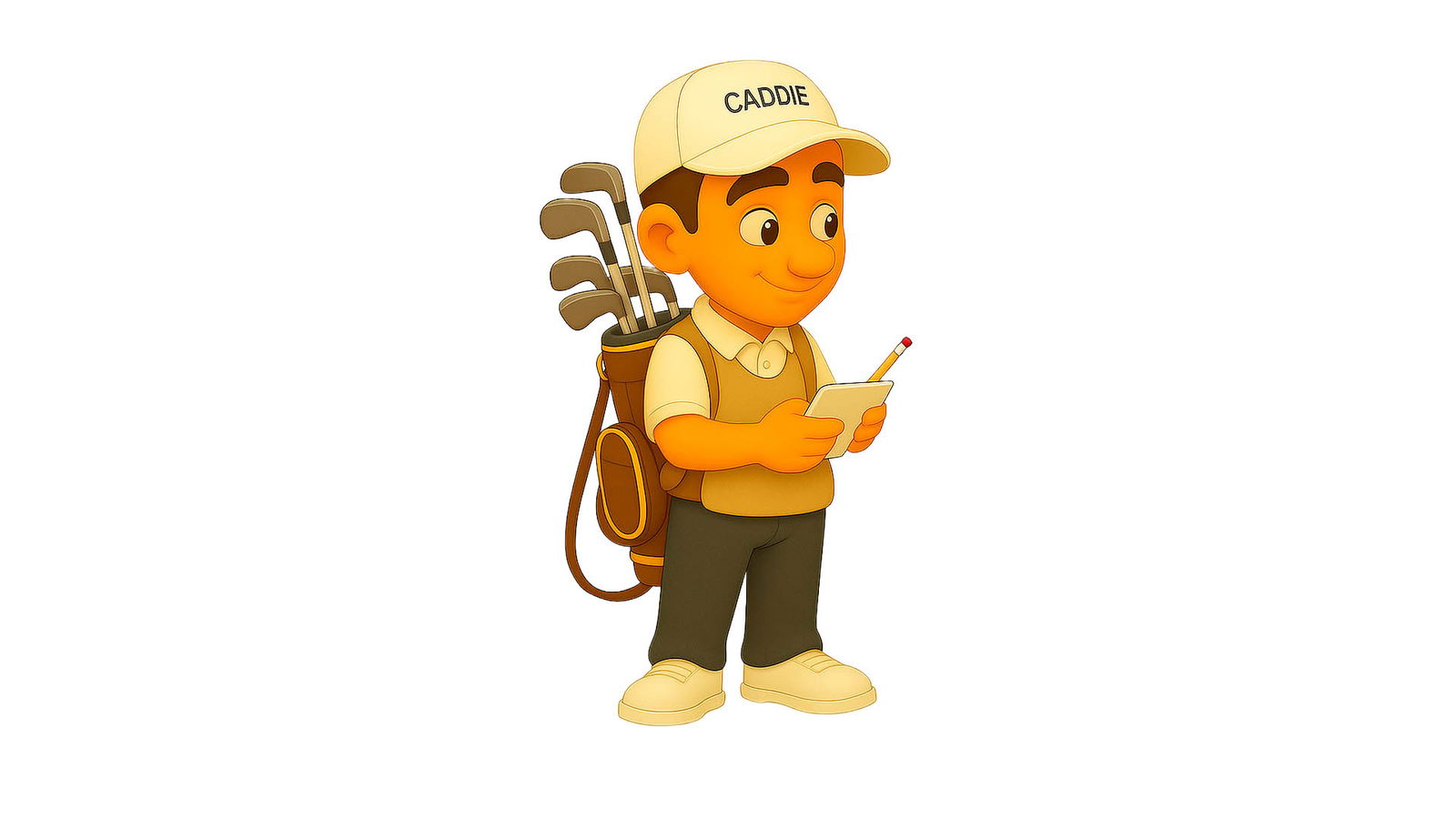
Strategy and Planning
The caddie’s role is the pre-shot routine.
Pre round, the role of the caddie is to create an 18-hole strategy that suits the player’s game and current ability.
Think of the preparation that elite caddies such as Ted Scott, who caddies for Scheffler, put into each round on the PGA Tour.
Great golf doesn’t just happen.
During the round, the caddie will provide the player with a confirmed yardage taking into account the conditions such as wind, lie and gradient.
Once that's all done, the caddie can now select the right club to use with total confidence.
It’s all about clarity, distance control, and making smart choices.
That’s the caddie’s role.
2. The Player
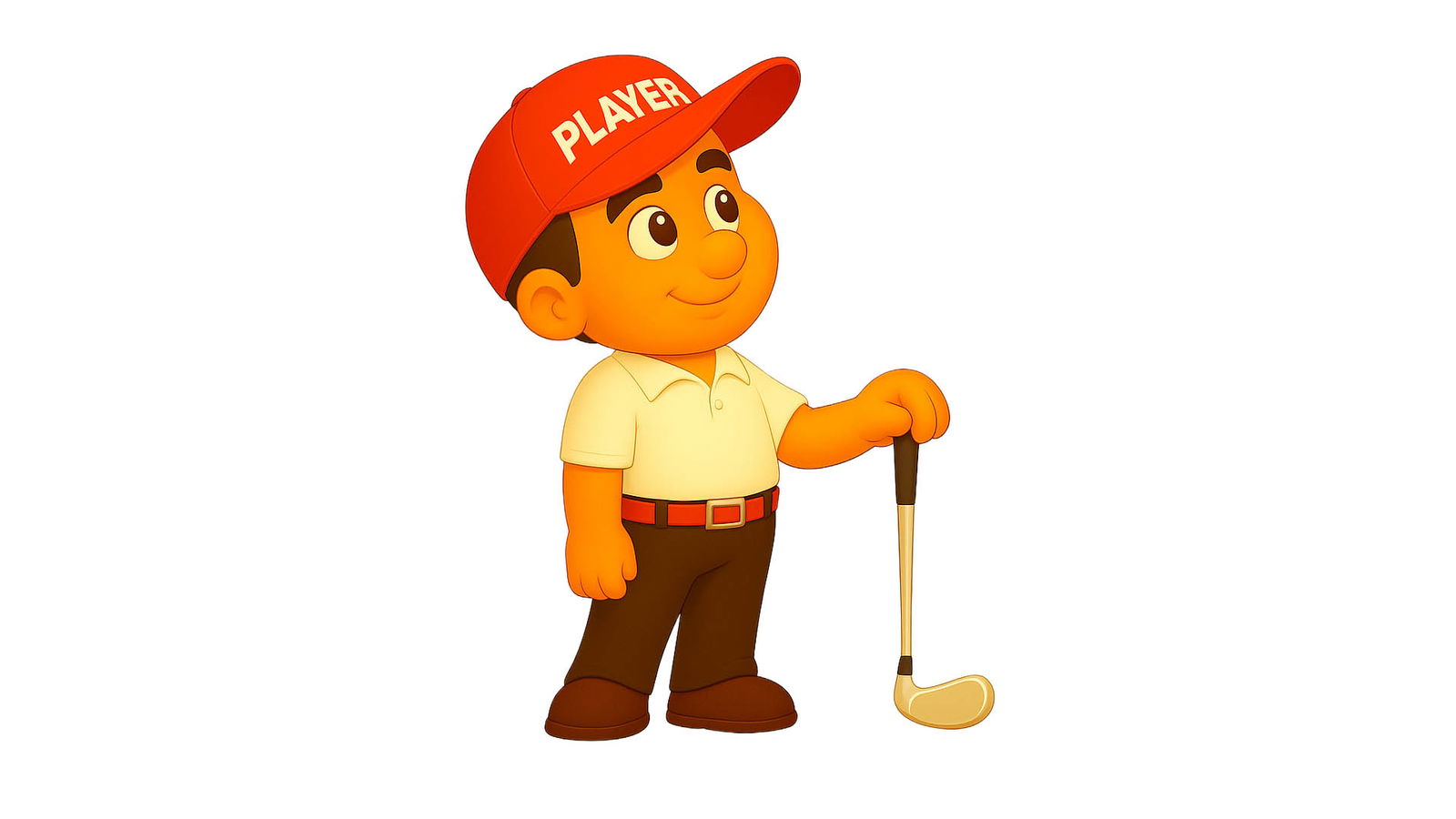
Process and Commitment
The player’s role is the shot routine.
The player freaks out at too much information and must not overthink.
Indecision or overthinking leads to tension and the player freezing over the shot.
The player’s only job is to follow a well-rehearsed step by step routine.
A typical shot routine may look like this:
Grip the club behind the ball
Look at the target and pick a spot
Take two practice swings
Set up, look up and hit
This consistent routine prevents the player from too much overthinking.
A great example of this specific shot routine is Ludvig Aberg.
3. The Coach
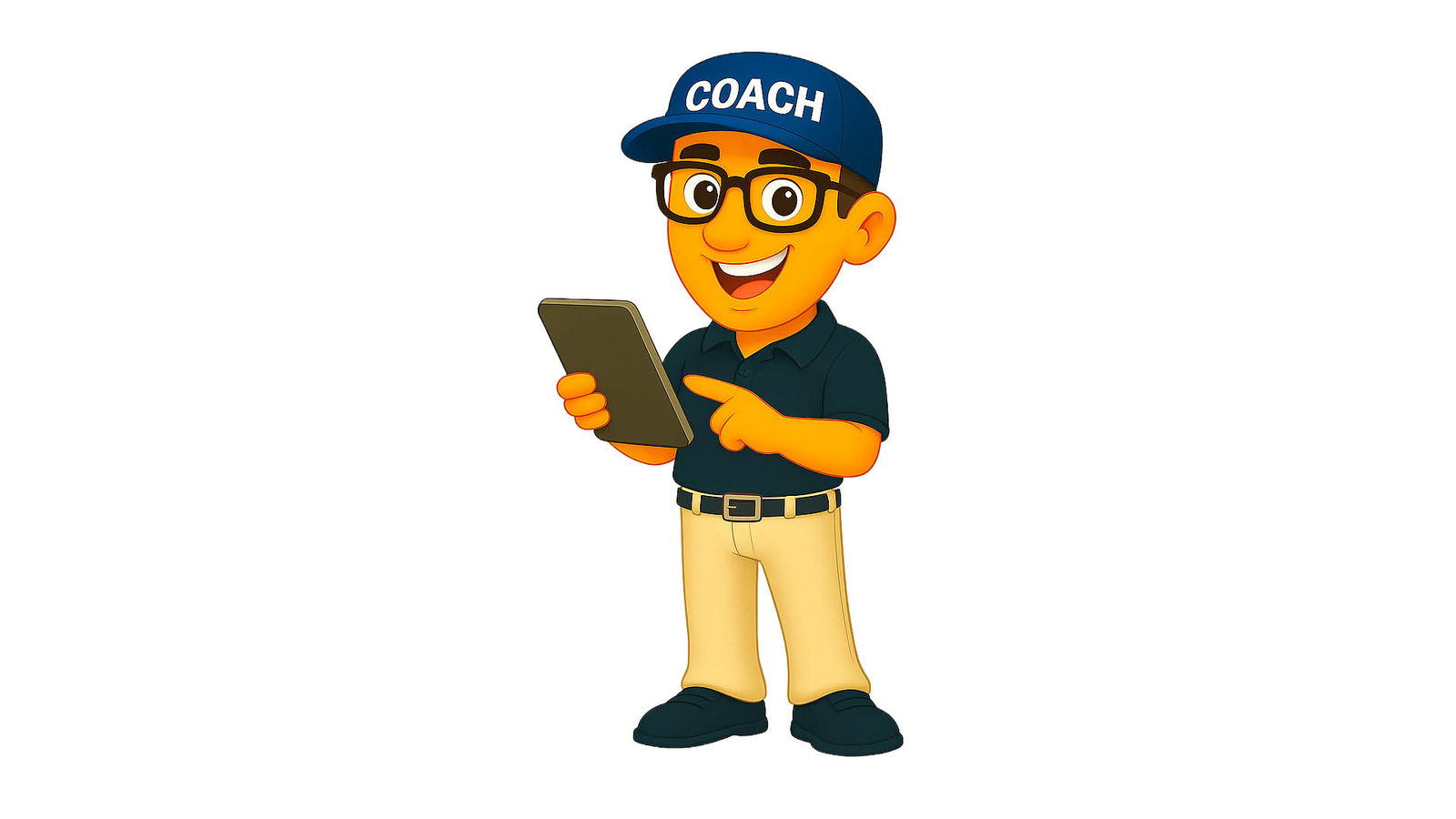
Fault diagnosis and Practice
The coach’s role is the post-shot routine.
The coach is all about the detail, understanding the route cause of bad shots.
Whether on the course or at a practice session, the coach has the knowledge and framework in place to diagnose a fault with confidence whether it's putting, short game, wedge play, recovery shots or swing.
Based on the ball flight, the coach can diagnose the fault and has a good understanding of what caused it.
This is a role that is so overlooked and vital for you to unlock your full potential.
We have all heard the saying paralysis by analysis but remember this is the coach’s role not the player's.
The player never diagnoses the fault!
4. The Psychologist
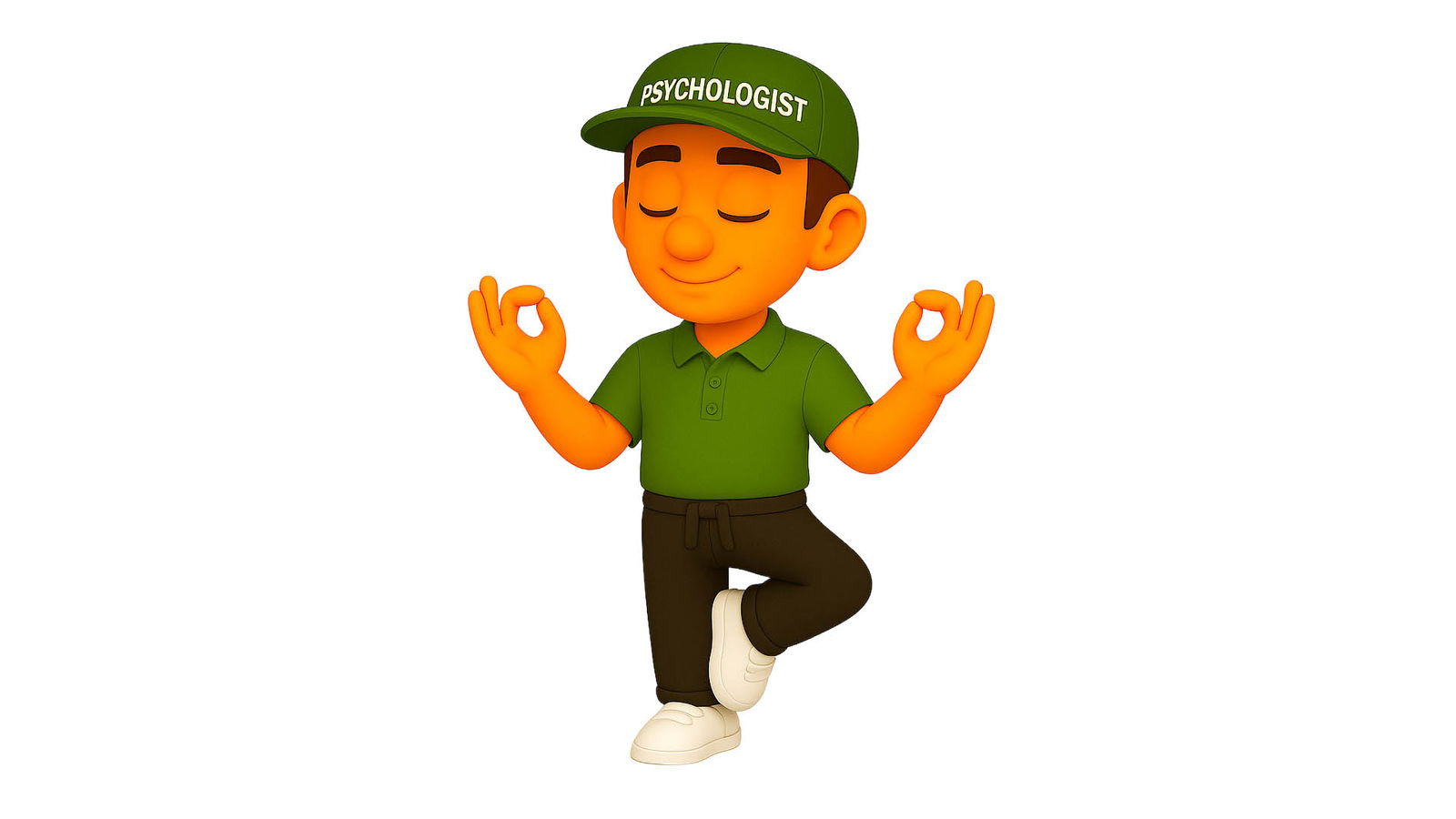
Staying Calm and Focused
The psychologist role is mindset.
The psychologist helps the player stay calm.
It’s practical psychology using facts to manage expectations.
For example, proximity stats show how close a good shot really is, helping you accept outcomes and avoid chasing perfection.
When we ask players who attend our half-day golf schools how close does a Tour professional land from the pin when playing from 20 to 30 yards, the typical answer is two to three feet.
But PGA Tour average is nine feet.
Understanding this changes your perception of what a good or bad shot is.
This is one of the practical tools the psychologist will use to prevent the player acting emotionally.
When the player stays calm, the whole team, the caddie, player and coach can perform their roles more effectively.
5. The Manager
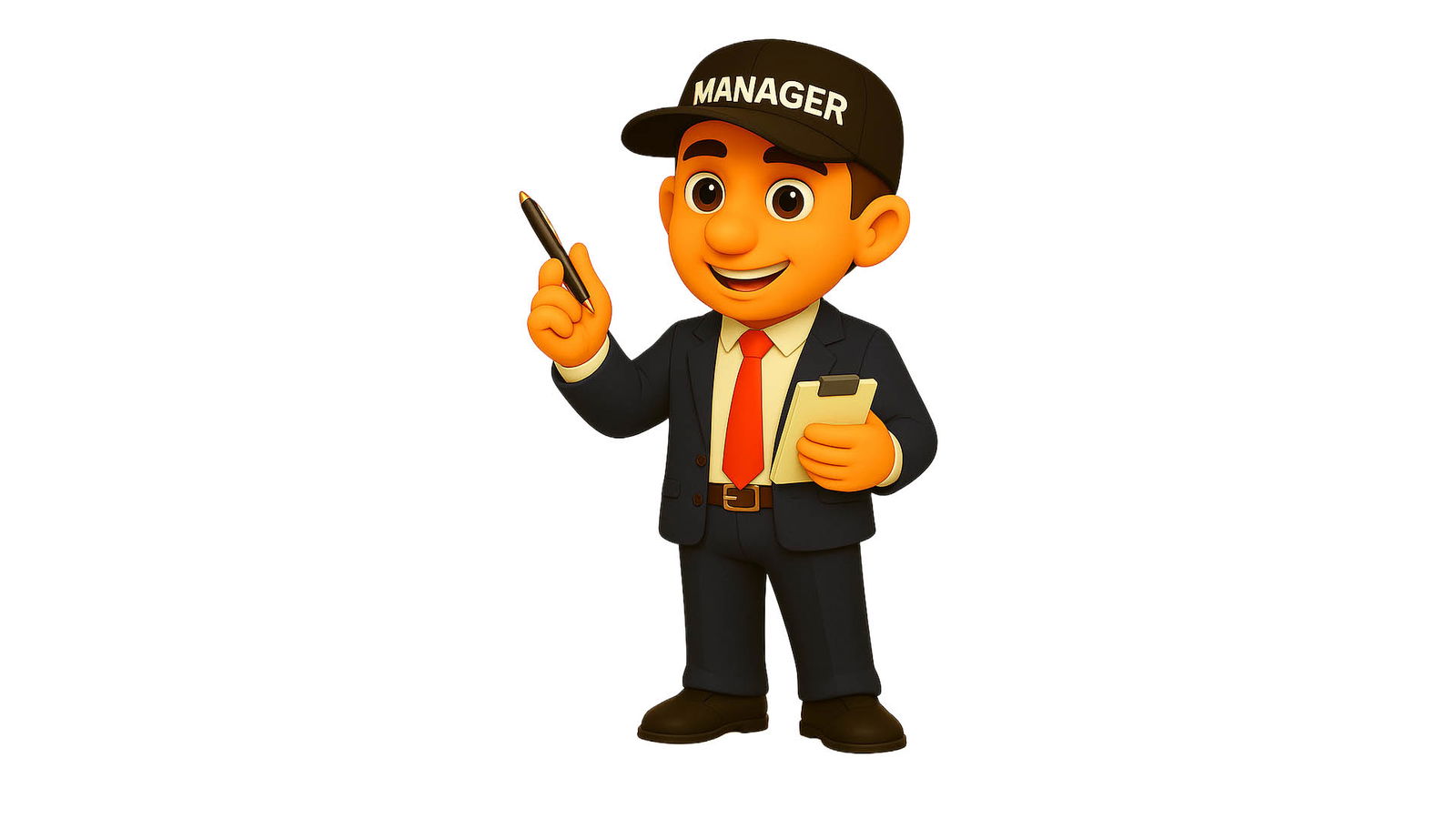
Reviewing and Prioritising
The manager’s role is the post-round routine.
Most players never assess their round and they wonder why the same mistakes keep happening time and time again.
Just like in business the manager brings the team together for a review.
They check in with each role:
Was the caddie’s strategy sound?
Did the player stick to the routine?
Did the coach identify the problem?
Did the psychologist help manage emotions?
Based on the answers, the manager then prioritises which role needs support and which areas to focus on before the next round.
Welcome to Your Team
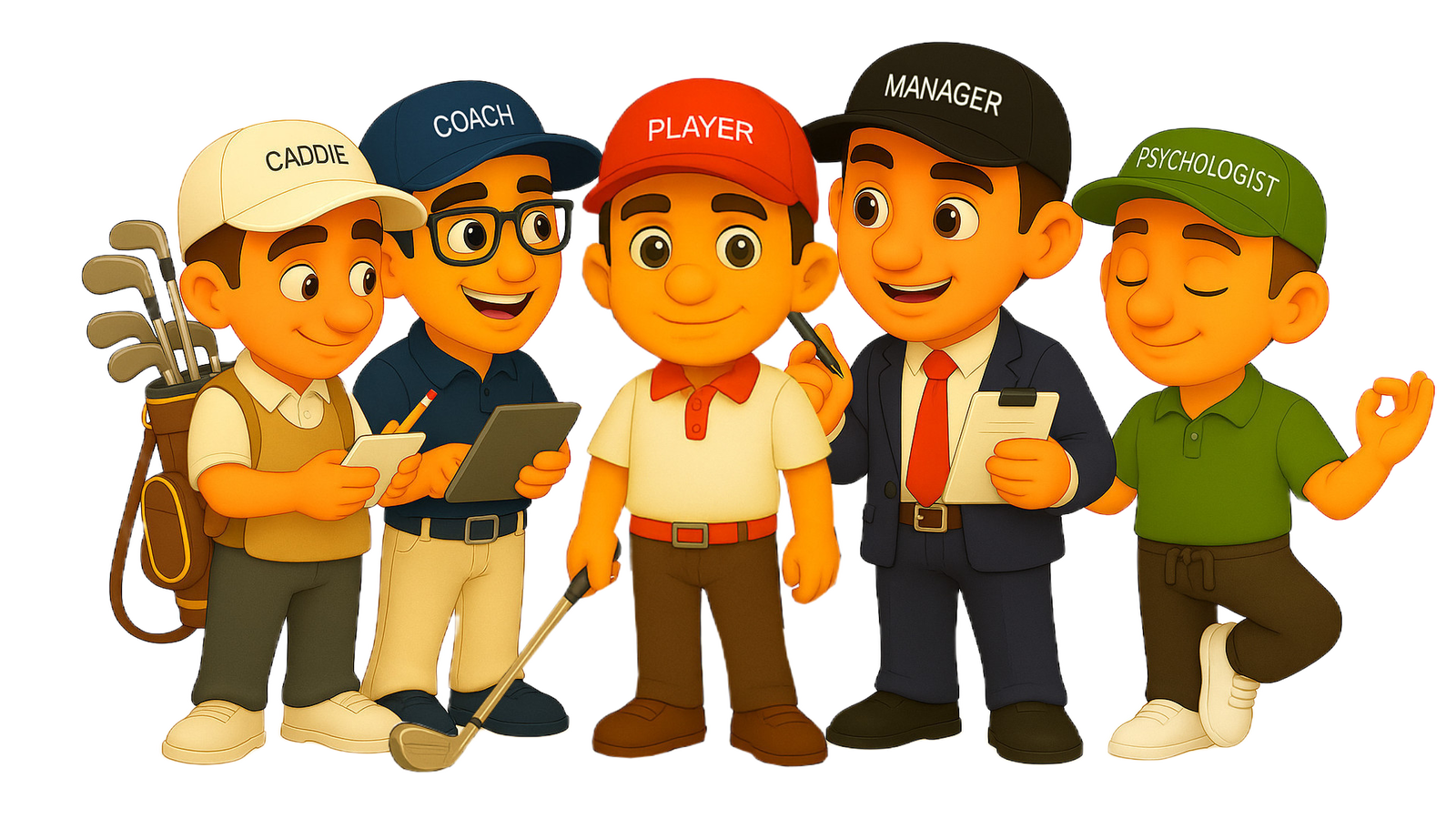
These five roles are vital to a player’s ability to unlock their potential.
Our role at YourGolf365 and through my regular GolfMagic articles will be to help you introduce these five roles into your game.
Over the next few articles on GolfMagic, we will go into more of a deep dive into each role.
For those of you who would like to fast track your game, as part of our new partnership with GolfMagic you get instant access to our 'Take Control of Your Game Freebies - CLICK HERE
Thanks, and I'll report back again next week.
Carl Watts
The Game Management Coach
YourGolf 365 - take control of your game
